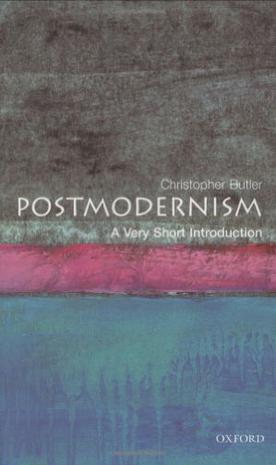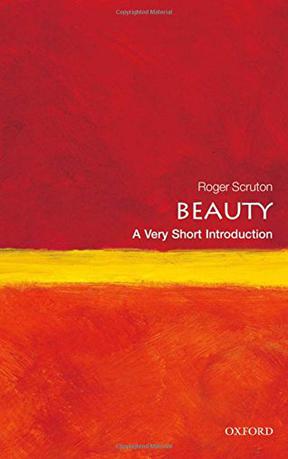-

Mathematics
The aim of this book is to explain, carefully but not technically, the differences between advanced, research-level mathematics, and the sort of mathematics we learn at school. The most fundamental differences are philosophical, and readers of this book will emerge with a clearer understanding of paradoxical-sounding concepts such as infinity, curved space, and imaginary numbers. The first few chapters are about general aspects of mathematical thought. These are followed by discussions of more specific topics, and the book closes with a chapter answering common sociological questions about the mathematical community (such as "Is it true that mathematicians burn out at the age of 25?") -

Russell
Bertrand Russell (1872-1970) is one of the most famous and important philosophers of the twentieth century. In this account of his life and work A.C. Grayling introduces both his technical contributions to logic and philosophy, and his wide-ranging views on education, politics, war, and sexual morality. Russell is credited with being one of the prime movers of Analytic Philosophy, and with having played a part in the revolution in social attitudes witnessed throughout the twentieth-century world. This introduction gives a clear survey of Russell's achievements across their whole range. -

The Philosophy of Law
The concept of law lies at the heart of our social and political life, shaping the character of our community and underlying issues from racism and abortion to human rights and international war. But what actually is law? A set of naturally occurring moral principles, or simply rules agreed by a particular society? What is a 'right' and what rights should people actually have? Is law really colour-blind and gender-blind? Can the law truly tell us whether gay marriages are immoral, what's wrong with racism, or whether we should go to war? Revealing the intriguing and challenging nature of legal philosophy with clarity and enthusiasm, Raymond Wacks explores the notion of law and its role in our lives. Referring to key thinkers from Aristotle to Rawls, Bentham, Dworkin, H.L.A. Hart and Derrida, he looks at the central questions behind legal theory that have fascinated lawyers and philosophers - and anyone - who ever wondered about law's relation to justice, morality, and democracy. -

Postmodernism
Postmodernism has been a buzzword in contemporary society for the last decade. But how can it be defined? In this Very Short Introduction Christopher Butler challenges and explores the key ideas of postmodernists, and their engagement with theory, literature, the visual arts, film, architecture, and music. He treats artists, intellectuals, critics, and social scientists 'as if they were all members of a loosely constituted and quarrelsome political party' - a party which includes such members as Cindy Sherman, Salman Rushdie, Jacques Derrida, Walter Abish, and Richard Rorty - creating a vastly entertaining framework in which to unravel the mysteries of the 'postmodern condition', from the politicizing of museum culture to the cult of the politically correct. -

Objectivity
- Is objectivity possible? - Can there be objectivity in matters of morals, or tastes? - What would a truly objective account of the world be like? - Is everything subjective, or relative? - Are moral judgments objective or culturally relative? Objectivity is both an essential and elusive philosophical concept. An account is generally considered to be objective if it attempts to capture the nature of the object studied without judgement of a conscious entity or subject. Objectivity stands in contrast to subjectivity: an objective account is impartial, one which could ideally be accepted by any subject, because it does not draw on any assumptions, prejudices, or values of particular subjects. Stephen Gaukroger shows that it is far from clear that we can resolve moral or aesthetic disputes in this way and it has often been argued that such an approach is not always appropriate for disciplines that deal with human, rather than natural, phenomena. Moreover, even in those cases where we seek to be objective, it may be difficult to judge what a truly objective account would look like, and whether it is achievable. This Very Short Introduction demonstrates that there are a number of common misunderstandings about what objectivity is, and explores the theoretical and practical problems of objectivity by assessing the basic questions raised by it. As well as considering the core philosophical issues, Gaukroger also deals with the way in which particular understandings of objectivity impinge on social research, science, and art. -

Beauty
Beauty can be consoling, disturbing, sacred, profane; it can be exhilarating, appealing, inspiring, chilling. It can affect us in an unlimited variety of ways. Yet it is never viewed with indifference. In this Very Short Introduction the renowned philosopher Roger Scruton explores the concept of beauty, asking what makes an object - either in art, in nature, or the human form - beautiful, and examining how we can compare differing judgements of beauty when it is evident all around us that our tastes vary so widely. Is there a right judgement to be made about beauty? Is it right to say there is more beauty in a classical temple than a concrete office block, more in a Rembrandt than in last year's Turner Prize winner? Forthright and thought-provoking, and as accessible as it is intellectually rigorous, this introduction to the philosophy of beauty draws conclusions that some may find controversial, but, as Scruton shows, help us to find greater sense of meaning in the beautiful objects that fill our lives.